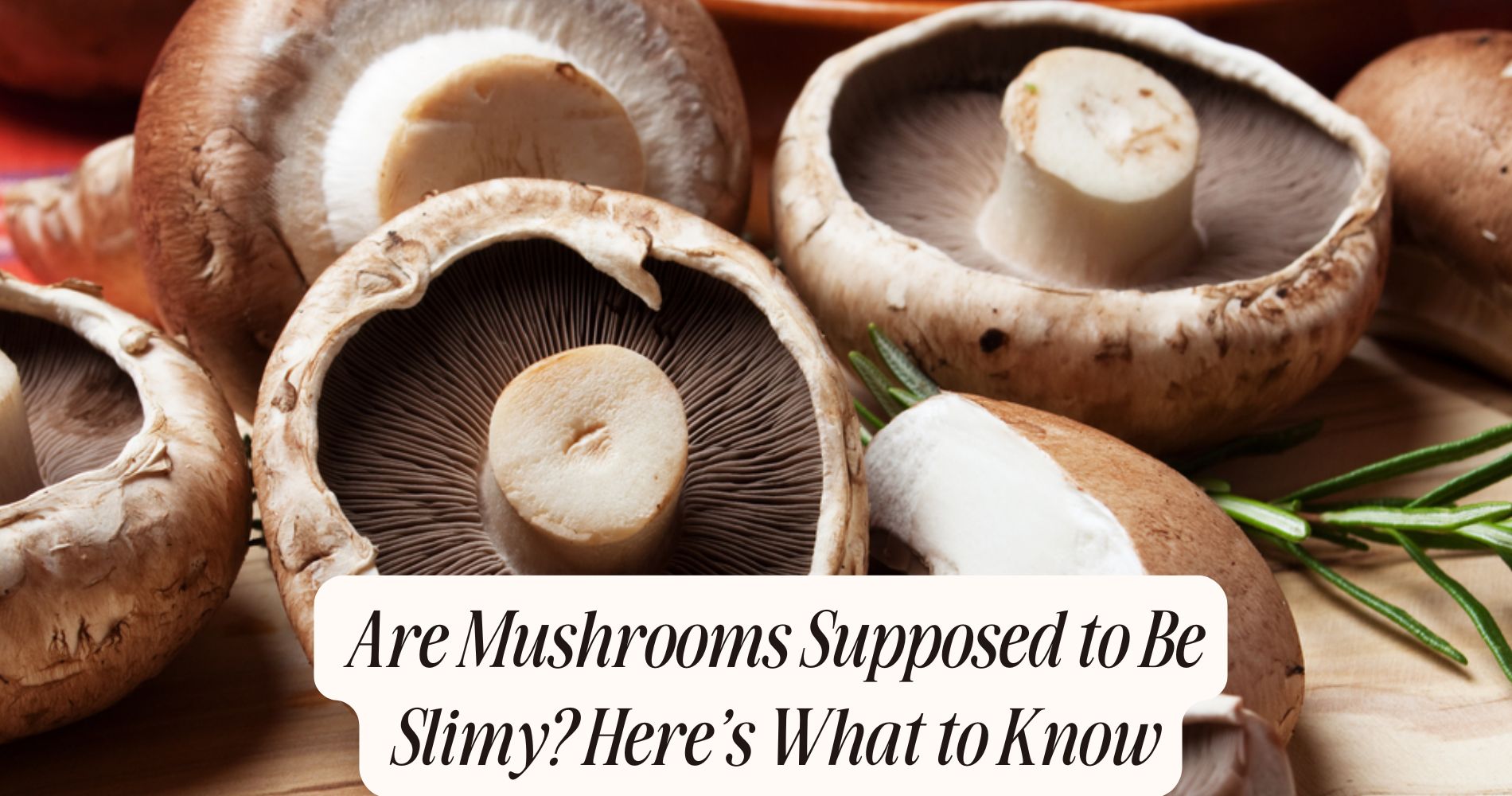
Can Diabetics Eat Mushrooms Safely? The Answer
Can diabetics eat mushrooms? Yes, you can safely eat mushrooms as a diabetic. They're low in calories and carbohydrates, which helps manage your blood sugar levels effectively. Mushrooms also have a low glycemic index, preventing rapid spikes in glucose. Rich in fiber and various vitamins, they promote satiety and provide essential nutrients. Just remember to practice portion control—about one cup of cooked mushrooms is ideal. You can choose from varieties like shiitake or portobello and prepare them by grilling or sautéing with minimal oil. Exploring how to integrate mushrooms into your meals can enhance their benefits even further.
Nutritional Profile of Mushrooms
Mushrooms pack a powerful nutritional punch, making them a valuable addition to any diet, especially for diabetics. With a wide range of mushroom varieties available, you can easily incorporate them into your meals. Common types like white button, shiitake, and portobello each offer unique flavors and textures, enhancing your culinary uses.
Nutritionally, mushrooms are low in calories and carbohydrates, which is essential for managing blood sugar levels. They're rich in dietary fiber, helping you feel fuller for longer and aiding digestion. Additionally, mushrooms are a good source of vitamins and minerals, including B vitamins, selenium, and potassium. These nutrients play an important role in maintaining overall health.

The antioxidants found in mushrooms also contribute to their health benefits, potentially reducing inflammation and oxidative stress. By incorporating various mushroom varieties into your cooking, you can explore different flavors while reaping their nutritional benefits.
Whether you're sautéing them for a stir-fry, adding them to soups, or grilling portobellos as a meat substitute, mushrooms can enhance your diet. So next time you're meal planning, consider how mushrooms can fit into your healthy eating strategy.
Benefits of Mushrooms for Diabetics
Incorporating mushrooms into your meals can offer numerous benefits for managing diabetes. Various mushroom varieties, such as shiitake, portobello, and maitake, are low in calories and carbohydrates, making them an excellent addition to your diet.
These mushrooms are also rich in fiber, which can help improve digestive health and may aid in weight management—an important consideration for those with diabetes.
Mushrooms are packed with essential nutrients, including vitamins B and D, which can support overall health. The antioxidants found in mushrooms can combat oxidative stress, potentially reducing the risk of diabetes-related complications.
Additionally, certain varieties, like reishi and lion's mane, have been studied for their anti-inflammatory properties, which may further benefit individuals managing diabetes.
Incorporating these health benefits into your meals can enhance your diet while allowing you to enjoy the rich flavors of mushrooms. Whether you sauté them, add them to soups, or use them as a meat substitute, you'll find that mushrooms are versatile and satisfying.
Impact on Blood Sugar Levels
When it comes to managing blood sugar levels, mushrooms offer several nutritional benefits that can be advantageous for diabetics.
Their low glycemic index means they won't cause rapid spikes in your blood sugar, making them a smart choice for your meals.
However, portion control is key, as even low-glycemic foods can impact your levels if consumed in excess.
Nutritional Benefits of Mushrooms
Adding mushrooms to your diet can provide valuable nutritional benefits, especially for those managing blood sugar levels. Different mushroom varieties, such as shiitake, portobello, and button mushrooms, offer a range of health benefits that can support your overall well-being.
Mushrooms are low in calories and carbohydrates, making them a smart choice for maintaining stable blood sugar levels. They're also a good source of fiber, which can help regulate digestion and promote a feeling of fullness. This can be particularly important for diabetics looking to manage their weight.

Additionally, mushrooms are rich in essential nutrients, including vitamins B and D, potassium, and selenium, which play crucial roles in metabolic health. The antioxidants found in mushrooms may also help reduce inflammation, a common concern for those with diabetes.
Incorporating various mushroom types into your meals can enhance flavor and provide the nutrients you need without spiking your blood sugar.
Glycemic Index Considerations
Understanding the glycemic index (GI) of foods is essential for managing blood sugar levels, especially for diabetics. The GI measures how quickly a food raises blood sugar, with lower values indicating a slower impact. Mushrooms have a low glycemic index, meaning they won't cause considerable spikes in your blood sugar levels. This makes them a safe choice for diabetics.
When considering the glycemic load (GL), which factors in portion size and carbohydrate content, mushrooms remain favorable. They're low in carbohydrates, so their glycemic load is minimal. For example, a typical serving of mushrooms contains only about 2-3 grams of carbohydrates, making their overall impact on blood sugar even less concerning.
Including mushrooms in your meals can help you maintain stable blood sugar levels while adding valuable nutrients without contributing considerably to your carbohydrate intake. This is particularly beneficial when planning balanced meals.
As you navigate your dietary choices, remember that mushrooms can be a versatile and safe addition to your diet, promoting overall health and well-being while keeping your blood sugar levels in check.
Portion Control Recommendations
Portion control plays an essential role in managing blood sugar levels for diabetics, especially when incorporating foods like mushrooms into your diet.
While mushrooms are low in carbohydrates and have a minimal impact on blood sugar, how much you eat and how often matters. Aim for portion sizes that align with your individual dietary needs. A typical serving of cooked mushrooms is about one cup, which can provide a good balance of nutrients without overloading your system.
Eating larger portions may lead to an unexpected increase in calorie intake, potentially affecting blood sugar levels over time. In addition to portion sizes, consider serving frequency.
When you include mushrooms in your meals, try to do so a few times a week rather than daily. This can help maintain a varied diet while still enjoying the benefits of mushrooms.
Types of Mushrooms to Consider
Mushrooms are often overlooked in discussions about diabetes-friendly foods, yet they can play a significant role in your diet. When considering different mushroom varieties, you'll find they're low in calories and carbohydrates, making them a smart choice for managing blood sugar levels.
Among the many edible mushroom types, shiitake, portobello, and cremini stand out. Shiitake mushrooms aren't only flavorful but also contain compounds that may support immune health.
Portobello mushrooms are hearty and versatile, serving as a great meat substitute in various dishes. Cremini mushrooms, similar to their white counterparts, have a rich flavor and can be easily added to salads or stir-fries.

Additionally, oyster mushrooms offer unique textures and flavors, while maitake mushrooms are known for their potential benefits in blood sugar control. Each of these mushrooms provides essential nutrients, including vitamins D and B, while being low in fat and high in fiber.
Incorporating these different mushroom varieties into your meals can enhance both taste and nutrition, making them a valuable addition to a diabetes-friendly diet.
Cooking Methods for Diabetic Safety
When cooking mushrooms, it's crucial to choose methods that maintain their nutritional value while keeping your blood sugar in check.
Techniques like grilling, steaming, or sautéing with minimal oil can help you avoid unhealthy additives.
Additionally, being mindful of portion control guarantees you enjoy the benefits without overloading on carbohydrates.
Best Cooking Techniques
Cooking techniques can markedly impact the nutritional value of mushrooms, especially for those managing diabetes. When you choose how to prepare your mushrooms, consider methods that enhance their health benefits without adding unnecessary calories or carbs.
Sautéing techniques are a great option. By using a small amount of heart-healthy oil, like olive oil, you can quickly cook mushrooms while preserving their nutrients. Sautéing also enhances their flavor, making them a delicious addition to various dishes. Just be mindful of the oil quantity to keep it diabetic-friendly.
Another excellent choice is grilling methods. Grilling mushrooms not only imparts a smoky flavor but also allows excess fat to drip away, making it a lean cooking option. You can marinate mushrooms in herbs and spices, avoiding high-sugar sauces, to amplify their taste without compromising your health.
Both sautéing and grilling help retain the fiber and essential vitamins in mushrooms, making them a smart choice for your meals. When you use these techniques, you're not just cooking; you're creating nutritious dishes that fit well within a diabetic diet.
Avoiding Unhealthy Additives
In the quest for healthier meals, it's essential to be mindful of unhealthy additives that can sneak into your dishes. When cooking mushrooms, you should focus on using healthy seasonings that enhance flavor without compromising your health. Many pre-packaged sauces and seasoning blends contain artificial additives, which can lead to increased blood sugar levels and other health issues.
Instead of relying on these processed products, consider creating your own seasoning blends at home. Combine herbs like garlic powder, thyme, and rosemary with a touch of olive oil to bring out the natural flavors of mushrooms. This approach not only cuts out harmful additives but also allows you to control the sodium levels in your meals.
If you do opt for convenience, always check the ingredient labels. Look for options that are free from artificial additives and high in natural ingredients.
Portion Control Strategies
Understanding portion control is essential for managing diabetes, as it helps regulate blood sugar levels and maintain a healthy weight. When it comes to incorporating mushrooms into your meals, paying attention to portion sizes is key. Mushrooms are low in calories and carbohydrates, making them a great choice, but overindulging can still impact your overall meal balance.
To effectively manage portion sizes, consider using measuring cups or a food scale during meal planning. Aim for a serving size of about one cup of cooked mushrooms, which provides essential nutrients without overwhelming your plate.

Pair mushrooms with a variety of non-starchy vegetables, lean proteins, and healthy fats to create balanced meals that keep your blood sugar stable.
Cooking methods also matter. Sautéing or grilling mushrooms with minimal oil can enhance their flavor without adding excessive calories. Avoid heavy sauces or frying, as these can quickly increase the calorie count and affect your blood sugar levels.
Portion Control and Serving Suggestions
While mushrooms can be a nutritious addition to a diabetic diet, portion control plays an essential role in managing blood sugar levels. When meal planning, it's important to take into account appropriate serving sizes to maximize the health benefits of mushrooms without overdoing it. Generally, a serving size of cooked mushrooms is about one cup, which contains roughly 15 calories and minimal carbohydrates, making it an ideal choice for diabetics.
To incorporate mushrooms into your meals effectively, aim to include them as part of a balanced plate. You can sauté them with non-starchy vegetables, add them to salads, or use them in soups and stews.
Keep in mind that variety is crucial; mixing different types of mushrooms can enhance flavor and texture while keeping your meals interesting.
Additionally, think about pairing mushrooms with lean proteins or healthy fats, as this combination can help stabilize blood sugar levels.
Potential Allergies and Side Effects
Mushrooms can be a delightful addition to your diet, but it's important to be aware of potential allergies and side effects that some individuals may experience. While most people enjoy mushrooms without issues, mushroom allergies can occur, causing symptoms like skin rashes, gastrointestinal disturbances, or respiratory problems. If you notice any uncomfortable reactions after consuming mushrooms, it's wise to consult a healthcare professional.

Furthermore, mushrooms contain certain compounds that can lead to side effects in some individuals. For example, some people may experience digestive discomfort, such as bloating or gas, particularly if they consume them in large quantities.
Additionally, certain varieties of mushrooms may interact with medications, especially those affecting blood sugar levels.
To minimize risks, start with small portions and pay attention to how your body reacts. If you're unsure about specific mushroom types or their effects, consider consulting a dietitian or allergy specialist.
Diabetic-Friendly Wellness with SUPER MUSHROOM GUMMIES
If you're wondering "Can diabetics eat mushrooms?" and want an easy way to enjoy their benefits, try Well Gummies' SUPER MUSHROOM GUMMIES. Packed with 10 functional mushroom types, these vegan gummies support immune health, enhance focus, and deliver sustained energy—all in a low-carb, diabetic-friendly form. With a delicious fresh wild berry flavor, they’re as enjoyable as candy and convenient for daily use. Experience the health-boosting power of mushrooms without worrying about blood sugar spikes with SUPER MUSHROOM GUMMIES!
Frequently Asked Questions
Can Mushrooms Interact With Diabetes Medications?
Mushrooms don't typically interact with diabetes medications, and their benefits can aid in diabetes management. They're low in calories and high in nutrients, making them a smart choice for your diet while managing diabetes.
Are There Specific Mushroom Varieties to Avoid?
You should be cautious with specific mushroom types, like poisonous varieties that can negatively impact your health. Most mushrooms have beneficial nutritional content, but it is crucial to research and choose safe options for your diet.
How Should Mushrooms Be Stored for Freshness?
To keep mushrooms fresh, store them in the refrigerator, preferably in a paper bag. This method prevents spoilage by allowing airflow and moisture control. Avoid plastic bags, as they trap humidity and accelerate decay.
Can Mushrooms Help With Weight Management for Diabetics?
Mushrooms can support weight management for you, as their low-calorie, high-fiber content aids weight loss. Their unique mushroom nutrition also offers essential vitamins and minerals, making them a nutritious addition to your diet.
Are Canned Mushrooms Safe for Diabetics?
Canned mushrooms are generally safe for you. They offer low-calorie, nutrient-dense benefits, contributing to better weight management. Their canned mushroom nutrition includes fiber and vitamins, making them a healthy addition to your meals.
Conclusion
To summarize, mushrooms can be a safe and healthy addition to your diet if you have diabetes. Their low-calorie, high-fiber profile can support blood sugar management. By choosing the right types and employing healthy cooking methods, you can enjoy their benefits while keeping portion control in mind. Just be mindful of any allergies or side effects that may arise. Always consult your healthcare provider to verify mushrooms fit well into your individual dietary plan.




